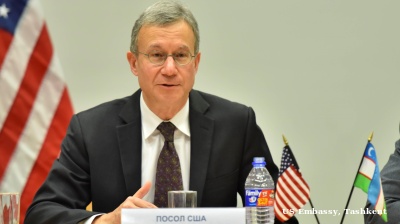The seasonally adjusted IHS Markit Russia Services Business Activity Index registered 52.2 in February, down slightly from 52.7 in January. The latest reading signalled a modest rate of expansion that was slower than the long-run series average. Any result over the no-change 50 mark is an expansion.
The services result follows on from the manufacturing PMI result, released earlier this week. The headline seasonally adjusted IHS Markit Russia Manufacturing PMI put in its strongest growth since April 2019 after registering 51.5 in February, up from 50.9 in January, signalling a marginal improvement in the health of the Russian manufacturing sector in the last month.
Taken together, the IHS Markit Russia Composite PMI Output Index posted 52.6 in February, up from 52.3 in January, to signal a moderate increase in Russian private sector business activity. The rise in service sector output eased slightly, but an acceleration in production growth was registered among manufacturers.
“February’s services PMI data indicated another moderate upturn in Russian service sector business activity. The rate of growth softened slightly from that seen in January amid a slower rise in new business. Nonetheless, firms were buoyed by increased client demand and expanded workforce numbers at the quickest pace for over a year,” Markit said in a note.
Inflation has been rising in Russia and was 5.2% in January. It is being driven by rising food prices – Russia’s Agriculture Ministry just froze poultry prices for two months – and the feed-through from last year’s devaluation. However, the bounce-back from the post-coronavirus (COVID-19) epidemic and the problems caused by the disrupted supply chains are also pushing up prices.
In the services sector supplier price hikes and greater transportation costs drove input prices up at a marked rate. Firms were able to pass on part of the rise in cost burdens, with the pace of charge inflation accelerating to a solid rate.
Meanwhile, the rate of cost inflation quickened in February, following January's six-month low. The pace of increase was the second-sharpest since January 2019 (behind November 2020). Higher costs were often linked to unfavourable exchange rate movements, supplier price hikes and greater transportation costs.
As a result, service providers increased their output charges midway through the first quarter. Anecdotal evidence largely revealed that greater output prices were linked to efforts to partially pass on higher costs to clients. Moreover, the rate of charge inflation was the second-fastest for almost a year (behind December 2020) and solid overall.
The pace of new order growth also eased in February, and was only marginal overall. That said, anecdotal evidence suggested that the expansion in new business was due to a sustained rise in client demand, Markit reports.
New exports orders, however, continued to contract. The rate of decline eased for the third month running to only a fractional pace, and was the slowest in the current 12-month sequence of decrease.
Another monthly increase in output requirements led service providers to raise their workforce numbers in February and unemployment numbers are starting to trend down as the economic recovery gets under way. February’s rise in employment was the first for six months. Despite being only marginal overall, the rate of job creation was the fastest since December 2019.
“Firms expanded their staffing levels despite signs of a lack of pressure on capacity. Service providers registered a renewed drop in the level of outstanding business, and one that was solid overall,” Markit said.
Business confidence among service providers was solid overall in February, with firms on balance expecting activity to increase over the coming year. Positive sentiment reportedly stemmed from hopes of an end to the coronavirus disease 2019 (COVID-19) pandemic, looser restrictions and a boost to client demand when measures are lifted.
Markit’s observation of improving optimism amongst service companies tallies with the most recent Rosstat survey that also found a marked uptick in business confidence as managers look forward to the end of the pandemic.
More generally, the expanding services sector supports the stronger manufacturing production expansion, and together they both support quicker private sector recovery from last year’s annus horribilis.
Data

Inflation falls in 70 Russian regions but remains above target
Consumer prices declined in 70 Russian regions in August compared with July, according to data released by the Central Bank of Russia on September 18, as annual inflation also eased in 77 of the country’s regions. (chart)

Belarus reports modest GDP growth 1.6% in 8M25
Belarus’ economy expanded by 1.6% in the period from January to August 2025, according to preliminary estimates from the National Statistical Committee, state news agency BelTA reported on 17 September.

Most Ukrainians reject Russian peace plan, back continued resistance, poll shows
An overwhelming majority of Ukrainians remain committed to resisting Russia’s invasion and reject Moscow’s latest peace proposals, even as many recognise that the war is unlikely to end soon, according to a new survey by the KIIS.

Young Bulgarians turn to stocks over real estate, survey shows
Real estate remains the most popular option overall but younger investors are leading a shift towards stock market investing, says survey commissioned by Revolut.



